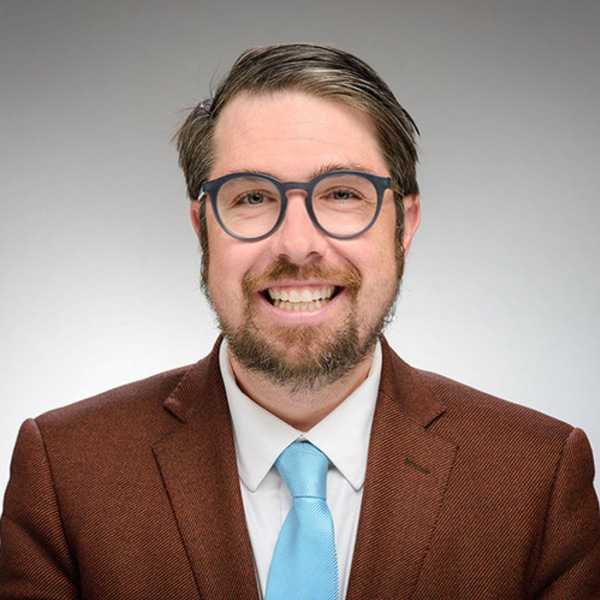Editor’s Note: This week, the director of the Notre Dame Center for Liturgy and the editor of Church Life is visiting the United Kingdom to give a series of talks on liturgy and secularization. He is also beginning an inter-disciplinary research project related to this topic. He will be blogging about his trip over the next seven days.
Grace Davie, the British sociologist of religion, has often noted the exceptional quality of Europe's secularity. Because of her work, it is impossible today to speak about a single experience of the secular.
In Britain, according to Davie, secularity is best understood as a vicarious religion. No matter how little belief that one might have, it is viewed positively that there is a vicar in town (along with a cathedral church), who can tend to the needs of people who require such things. It's good that the Church exists to carry out the rites of passage necessary for maintaining social order.
Secularity in the United States, of course, is different than this. Much of this has to do with the American character as a whole (which tends to be less reserved than England's). Americans privilege religious experience that is authentic, sincere, and genuine. We want religion that is transformative of the individual’s life in tangible ways. In essence, we are a nation of evangelicals (including many of the Catholics). Whereas in England, the Church of England functions as the established religion, a politically required form of cultural religiosity that the United States lacks.
Yet, in my conversations with Catholic leaders thus far in England, I suspect that we are entering a new stage of secularity: globalized secularism. If we think about how market economies function, it should not be surprising that secularity has ceased being a purely local phenomenon and has become a global one.
Take, for example, craft beer. The last time that I was in the United Kingdom, there wasn't craft beer. In a pub, you could get the major beers of European breweries, as well as the pub ales of old (London Pride, Greene King IPA, etc.). Today, you can walk into any pub in the United Kingdom and suddenly there are a myriad of craft beer choices (including Goose Island, which is of course, owned by Budweiser...but that's another story). The economic infatuation with the local, together with the American influence upon product development has resulted in British pubs starting to look more American (at least in their beer selections and thus the temperature that the beer is served). The market has brought us together because the market is the primary engine for globalization.
Akin to the craft beer industry, American and British experience of religion is starting to look more alike. About 10% of England’s population will attend weekly Mass (14% less than the United States). This decline of religiosity among both nations will most likely continue in the coming years. Although the United States may never see single digit participation, it is likely that the present 24% is not the low water mark based upon rates of infant initiation and celebrations of the sacrament of marriage. Numbers aren't everything. But it's hard to have a religion that emphasizes participation in divine life through full, conscious, and active participation when people aren't there.
In addition, in both the U.K. and the United States, we see a sizable increase in the number of nones, those who do not practice any particular religion. Among English Catholics, there are now more nones than those who "check the Catholic box." In the United States, among Millennials, the nones are the highest growing religious body.
In this sense, the claim that the Church of the future will be a smaller, "purer" Church is not really the result of some intentional desire to get rid of people from the Church. It is the recognition of a sociological reality: those who will be left in the Church, in an era in which participation in Church life is optional, are those who want to be.
Perhaps, Europe is not so much the exceptional case but the canary in the coalmine. And England, sharing a common intellectual tradition with the United States, is particularly important in this regard. Certainly, there are significant differences between the U.S. and English secularization (after all, they are different places...with different histories...see the musical Hamilton). But, the differences cover over a more substantial commonality.
What is this commonality? I’d like to suggest, based upon my conversations thus far, that both England and the United States share in common the malaise of cultural forgetfulness and a distrust of institutional religion.
Many of my interlocutors have noted that students who were baptized Catholic but never practiced have little to no regret about their status as “lapsed” Catholics. They do not experience any sense of regret that they are unaffiliated from the Church. For they could not imagine why the Church would be important to them in the first place. They have forgotten why one might be Catholic to begin with.
This lack of memory of Catholicism is made possible by a pervasive cultural forgetfulness that has affected Europe and the United States alike. Even interested students are not quite sure how to practice their faith, having to learn rather late in life the essentials of what constitutes Catholicism. These religious students are fundamentally intrigued by Catholic practice. They are not hostile. They just don’t know, which makes it easy for them to leave Christianity behind.
In addition to the lack of memory, there is an institutional distrust present in America and England alike. The Church is not necessary because it is a mere institution, a collection of general ideas that the individual must test against his or her own subjectivity. The Church’s sexual teaching, the sacramental life, commitment to common living and spiritual development: all of this is viewed as optional in both the United States and the United Kingdom.
In this sense, we reach the heart of the problem of religion in both the United States and the United Kingdom: the problem of the subject. In late modernity, the subject, who assesses the validity of the religious practice, must verify every practice. But, in Catholicism, religious practice never involves the pure subject. It is always the subject, the self, being transformed through an encounter with the objective rites and practices of the Church.
It is going to Mass when you don't want to. It is praying the Office when you don't want to. It is feeding the poor, clothing the naked, when you don't want to. And perhaps, in the process, learning to want to.
It is this pure subjective approach to religious practice, affirmed by a market economy, that makes it difficult to effect religious transformation in late 21st century religious life in the West. If religious practice is simply up to the experience of the subject, then the subject's affections become the measure of what is true, good, and beautiful.
In England, this is also playing out in the Anglican Church's use of Fresh Expressions. Evangelicals in the Church of the England seek to find alternative ways to construct the identity of the Church from the liturgical-sacramental dimension of Church life. It is not a process of ressourcement, of returning to the wellsprings of Christian life. It is instead the creation of a "fresh" way of doing Church for the person who is seeking out freshness for freshness' sake.
Unfortunately, one generation's fresh expression is the next's mundane and boring approach to religious practice that must now be overturned. This gives no time for the development of spiritual charisms that can actually renew the Church at a fundamental level. Because there's always something new to try.
It is this desire for making things "fresh" for the subject that will in the end effect the last stage of secularization both in the United States and the United Kingdom (if we're not careful). The desire for constant change, for freshness, for breaking everything down to build it back up, is the modern posture par excellence. It creates subjects who come to adore not the unchangeable God but change itself.
England and the United States are both attracted to evangelization strategies that play upon this pure subjectivity, this freshness of religious perspective. But with the emphasis upon the subject in the modern world, is there any other option in an era in which the subject is viewed as the ultimate measure of truth?
In point of fact, there is. In an age where there is a lack of cultural memory about what constitutes Catholicism, it is essential to introduce young people into this memory. And not just the part of the memory that the minister sees as most important.
The problem often with post-conciliar Catholicism was a rather thin version of the history of the Church. In the 2nd century things were great, in the 6th still okay, by 10th everything was terrible, then Vatican II and that's really what was important. This narrative destroys the chain of memory that makes possible worship in a secular age.
For, why would one belong to a religious body that was fundamentally wrong on everything for six centuries? Couldn't it be the case that the Church, thus, is very wrong now? Has the Church ever been right?
We need a form of pastoral ministry that, of course, introduces students to the person of Jesus Christ. But once they've met Jesus, we have to introduce them to every significant cultural and spiritual practice within the Church. They should see each of these practices as ways of cultivating their subjectivity, while connecting it to the history of the Church.
Pastoral ministry in a secular age will mean giving up a rigid sense of what Catholic identity consists of (and such rigidity is not present among conservative Catholics alone...it's all over progressive Catholicism today, which continually tells people what religious practices are acceptable for the modern person because they conform to the Spirit of the Council).
Instead, a Catholic subject will employ everything within the Tradition as a way of entering more fully into the love of God. For this reason, everything must be taught, not just our own preferred narrative of what the Church ought to be.
We must create spaces in the Church where the cultural memory of Catholicism is passed on not for its own sake. We are not cultural aesthetes, appreciating art for art's sake. We pass on these Traditions because they are tried and true ways of mediating a more personal encounter with Christ through the Church.
Particular practices matters. Because these practices are not self-created, not fresh expressions. They are the way that the Church has passed on identity throughout the ages. And, I get a sense from England's approach to Catholicism, that they still work today. The United States can learn from England's attention to particular religious practices, to a memory that is difficult to escape when you're wandering through a medieval University town such as Durham, past the Church of English Martyrs in Cambridge, or through Blackfriars in London.
We don't need fresh expressions.
We need fresh vigor.
Fresh vigor given to old practices that help us make sense of our lives in a broader story of salvation. Of a community that transcends the boundaries of the present and moves both to the past and to the future.
This holistic sense of Catholicism, of letting as many orthodox flowers bloom as possible, is the only way to deal with this globalized secularity.

